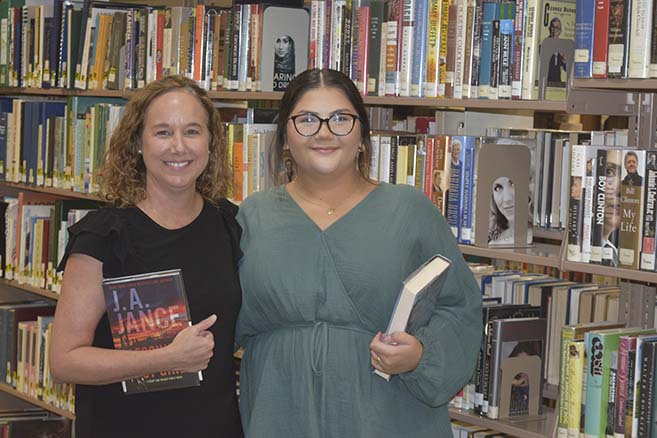Atmore library to ban checkouts by juveniles without parent or consent form

By DON FLETCHER
News Staff Writer
Effective October 1, Atmore Public Library’s (APL’s) downstairs section will be for adults only. In a manner of speaking.
On that date, in an effort to meet the most recent guidelines of the Alabama Public Library Service (APLS), no one under the age of 18 will be able to check out any book, video or other form of media from the local library unless a parent or guardian is present to OK the transaction, or a signed consent form is on file that gives the juvenile permission to borrow any item available for checkout.
“Our board voted at its last meeting to make that policy change,” Library Director Hope Lassiter said. “Effective October 1, anybody under 18 needs to have a parent or guardian with them when they check out a book, or they have to have a parental consent form on file. The change in policy was made to protect us, and to protect minors.”
Although there was no actual mandate from APLS, the threat lingers that state funding will be cut to any Alabama library that does not meet the new guidelines.
“That’s huge,” said Lassiter, who pointed out that City Attorney Larry Wettermark had drawn up a new set of policies that keeps APL in compliance with the state guidelines. “That’s the money we buy all our books and materials with, so there are certain guidelines we had to incorporate into our policies.”
Many libraries that wanted to keep their revenue stream running had to relocate books and other materials, moving those specifically for young adults and juveniles to the Adult section, away from where children’s books are shelved.
Atmore’s library didn’t have that problem. Its children’s section is on the second floor, while the rest of its inventory is downstairs.
“Thankfully, we didn’t have to move any of our books,” Lassiter said.
Several libraries are issuing new cards that are specific only to adults 18 and over. Lassiter said APL did not have plans to do so.
“No, we’re not issuing new cards; people can keep the ones they have,” she explained.
Anyone who wishes to complain about the library’s placement of a particular book, video or other medium (E-book, magazine, audio book, newspaper or other) will have to fill out a “reconsideration form” that includes the reason the person is asking for the removal or replacement.
Such a complaint can only be filed by a regular library user of at least three months who has concerns over an entire book or other medium, or parts of it, or who is concerned with the item’s placement.
The juvenile ban also applies to the library’s computers, which already have filters on them to prevent access to many sites.
“If the person is under the age of 18, he or she will still have to have a signed consent form from a parent or guardian to use the computers,” Lassiter said.
The library director pointed out that a parent or guardian must come to the library with the juvenile to fill out and sign the form allowing access to all materials, including those aimed at adults.
She warned parents and guardians that a “full access consent form” gives the library permission to allow a youngster unrestricted access to all library materials. The card may be revoked — by the parent — at any time.
APL’s policy manual now includes a Parents’ Bill of Rights that makes a parent or legal guardian “the judge and maker of decisions as to the level of unaccompanied and unrestricted access a child will have to library services.”
If a parent or guardian executes the consent form allowing a juvenile full and unrestricted access to library materials, the minor will be issued a Minor Access Card that will remain in effect until he or she reaches 18.
“That makes the parent the responsible party, not the library, and that’s the way it should be,” Lassiter pointed out. “Who else knows what book, movie or other material a child is old enough to handle?”
